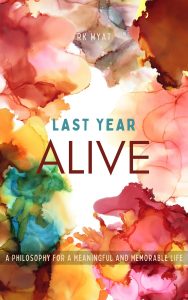Sometimes, when I go to bed at night and try to fall asleep, I find myself thinking I had somehow lost the day - like I didn't give it my all, like there's more I could've done, like I don't deserve to sleep after an unproductive day like this. Mostly I don't even feel like sleeping. And why would I? I didn't do enough to exhaust myself during the day! At that point it's usually too late to get back up and grind for any substantial amount of time so all there's to do is to wait and let the self-criticizing do the exhausting until restless sleep arrives. Or is there?
If you catch yourself having difficulty finding the way to dreamland, try this. Plan out, in your head or preferrably with pen and paper, the ideal day for tomorrow. And when I mean ideal, I mean ideal in the way that in the next evening, when wrapping up the planned day, you feel mentally weary in a way that suggest you didn't waste a second of precious time to do something that didn't bring meaning or happiness into your life. This could mean picking an early time to wake up, deciding to exercise, set time blocks for work and hobbies and family, reading, reflecting, meditating, or choosing when and what you're going to eat during the day. The more detailed the plan, the better. Ideally plan only activities that are meaningful to you but if you positively must do something you don't identify with, plan to do it first in the morning. (An article about Brian Tracy's frogs coming up.) After that do only things you really look forward to doing and advance your long-term or short-term goals.
It's amazing for much cool, enjoyable, and meaningful stuff you can do during the day. And if you think you don't have the time, you're probably mistaken, as most people spend at least a part of their day doing mindless things. By following the plan the next day it's unlikely that you find yourself doing those as you've waited for the meaningful activity since the previous night, consciously or subconsciously.
Some might argue that most of their day is spent on a job in which they see no meaning. Those people are usually exhausted by their work as it is but I still suggest those people change to a new profession. There's a difference between exhaustion due to the feeling of accomplishment and self worth and meaningful work, and exhaustion due to negative stress.
It's a highly addictive feeling, knowing you did your best. And knowing you did things that were meaningful. It's an addiction that increases not only your quality of sleep but also your self-respect.
RK

